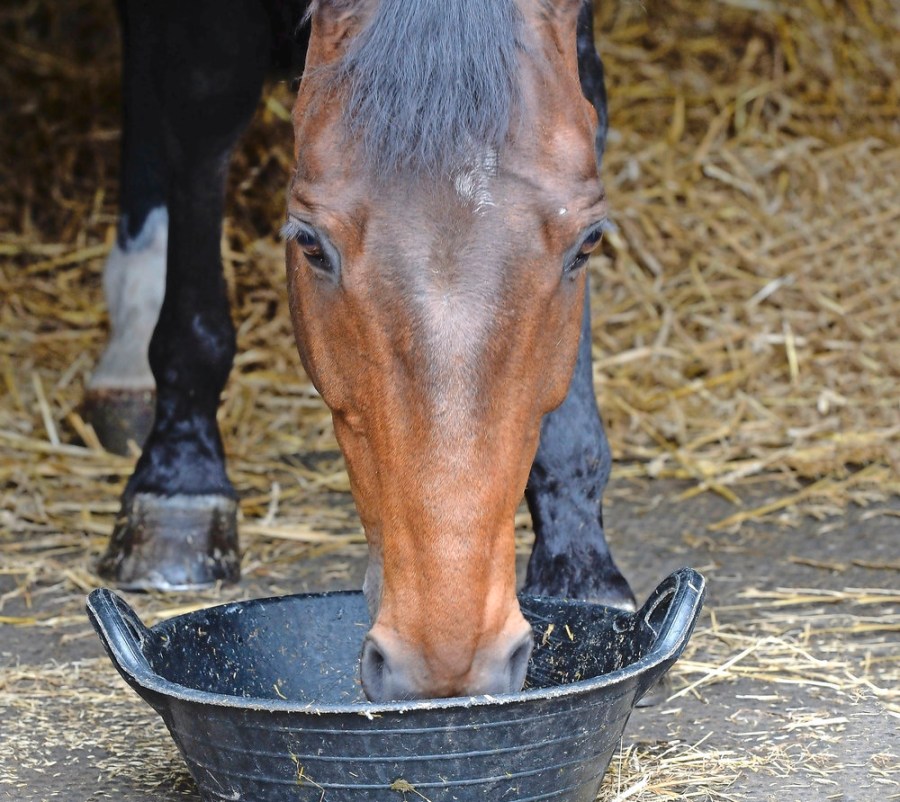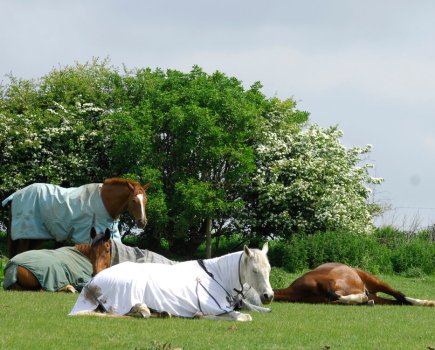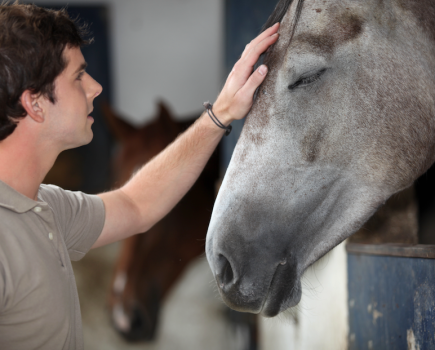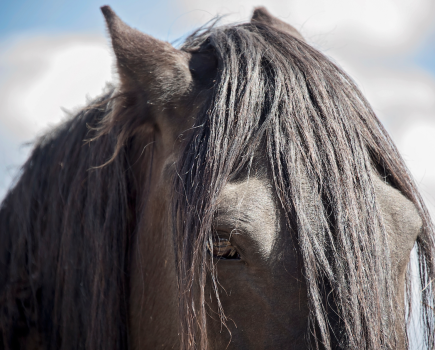In partnership with Allen & Page
The use of calmers is an area of equine science that would benefit from further research. That said, anecdotally many owners report improvements in their horse’s behaviour when fed one. Allen & Page nutritionist Jo Palmer explains what you should know before you feed a calmer.
Before looking to add a calmer to your horse’s diet, though, check that the feed you are already giving them isn’t fuelling the unwanted behaviour. If you are giving them a high-energy feed, your horse may simply have too much energy, so try reducing the energy level of their diet to see if there is an improvement.
If your horse needs a high-energy feed to fuel an active workload, or help them put on or maintain weight, choose a feed that provides slow-release energy from fibre and oil sources rather than fast-release energy from starch and sugar. It is well recognised that the high starch and sugar levels associated with molassed or cereal-based diets can cause fizzy and excitable behaviour in some horses.
Switching to a feed that is free from molasses and whole cereal grains can often reduce excitability and lead to more focus and control during work. Also, be aware of any potential feed intolerances your horse may have as this can affect behaviour and increase excitability and spookiness. The main ingredients that cause problems for some horses are barley, molasses, and alfalfa, so check your feed bag label for the list of ingredients.
Calming foods
Calming supplements use a selection of ingredients, including L-tryptophan, herbs, magnesium and B vitamins, that are thought to have a positive effect on calming anxiety and reducing stress.
L-tryptophan is an essential amino acid that is converted to serotonin, which is a neurotransmitter that helps to control mood. Herbs such as camomile and valerian are known for their calming properties. Magnesium is a mineral that has been found to decrease nerve and muscle activity and reduce adrenaline and cortisol release, and B vitamins are essential for the correct functioning of the nervous system.
As there is such a large variety of horse calming supplements on the market, all with different combinations of ingredients and formulas, it can be difficult to decide what would be the best to buy.
Trial and error is often the best way to find the ideal supplement for your horse. Personal recommendations from fellow owners are a good place to start, too, but you will often find that one type of supplement works better for one horse than it does for another.
Remember…
When competing, check that the supplement you are using is approved by the BETA NOPS (Naturally Occurring Prohibited Substances) scheme to avoid your horse potentially failing a drugs test.
Meet the expert: Jo Palmer has a BSc (Hors) in agriculture with animal science and is a member of the Allen & Page nutrition team, helping to guide owners on feeds and feeding.
Check out our subscription offer








